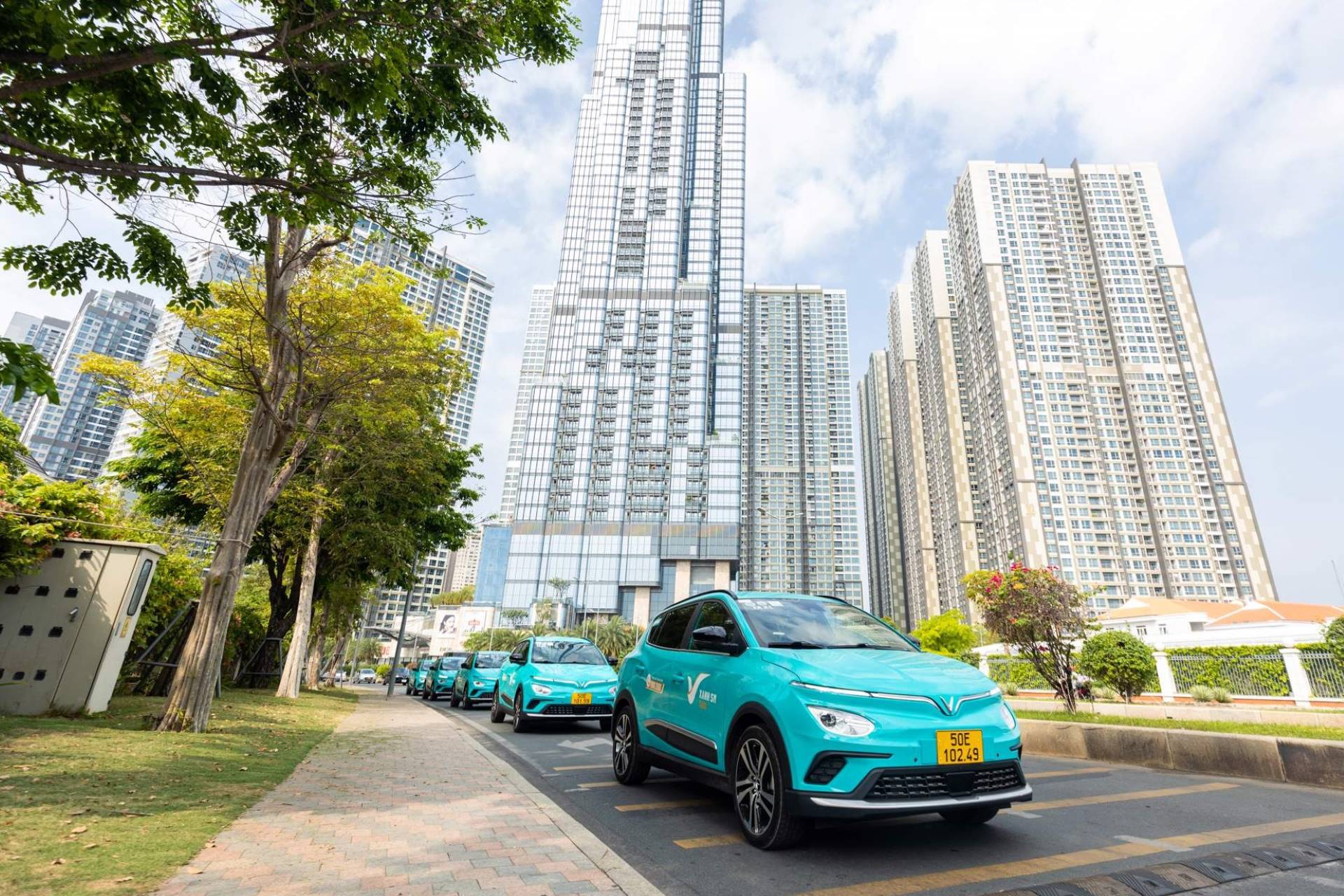Taking a Leaf Out of Xanh SM’s Book: Jakarta's Path to Green Taxis
HANOI, VIETNAM - Media OutReach Newswire – 9 December 2024 - By electrifying its taxi fleet, Jakarta could significantly reduce emissions and improve air quality, as shown by the success of electric taxis in cities around the world.
One standout example is Xanh SM in Vietnam, which has also reshaped public attitudes toward electric vehicles (EVs).
Jakarta is no stranger to air pollution, frequently ranking among the world's most polluted cities. In fact, it topped IQAir's global rankings as the world's most polluted city just this June[1].
This pollution is more than a nuisance—it is a menace to public health. Agus Dwi Susanto, chairman of the Indonesian Society of Respirology, describes it as a "silent killer."[2] Research from the Society shows that outdoor workers in Jakarta face heightened risks of respiratory illness due to the city's poor air quality. The main culprit? Transportation, which accounts for a staggering 44% of Jakarta's air pollution[3].
With vehicle emissions dominating the city's pollution profile, the urgency for cleaner transport solutions has never been clearer. Amid this crisis, electric taxis offer a dual opportunity: they reduce emissions and reframe public perception of sustainable mobility.
Jakarta's Struggle with Vehicle Emissions
The engine of Jakarta's economy is also its greatest environmental burden. Roughly 24 million vehicles traverse the city's roads daily[4], spewing harmful particulate matter and nitrogen oxides into the air.
To combat this, Jakarta has implemented aggressive measures. Two low-emission zones (LEZs) now restrict high-emission vehicles, encouraging the use of cleaner alternatives like electric cars. The odd-even license plate rule further incentivizes EVs by exempting them from traffic restrictions. Additionally, emissions testing for certain vehicles adds another layer of accountability. Still, while these initiatives are essential, they are not enough to solve the problem. The most promising path forward lies in electrifying transportation.
Electric taxis' role in bringing about cleaner air is clear. In Guangzhou, China, a 2021 study published in Environmental Science & Technology found that electric taxis reduced particulate matter by 34% and nitrogen oxides by 51%[5]. A 2024 analysis further that replacing gasoline cars with EVs reduced emissions by 8.72 kilograms of CO₂ per vehicle each month[6]. Meanwhile, in Cambridge, UK, electrifying 10% of the Hackney Carriage fleet lowered NOx emissions in city centers by 11%[7].
Beyond reducing pollution, electric taxis are catalysts for public awareness. Each one becomes a moving billboard for sustainability, normalizing EVs and encouraging individual adoption. In that sense, taxi fleets have a unique ability to accelerate the transition to sustainable transportation.
Lessons from Xanh SM: A Blueprint for Jakarta
Electric taxis are more than a local solution; they're part of a worldwide movement, with major cities in North America and Europe leading the charge.
Closer to home, Jakarta can draw inspiration from Vietnam's success in green transportation, led by Xanh SM, the country's largest pure-electric taxi operator. Since launching in Hanoi in 2023, Xanh SM has expanded to 56 of Vietnam's 63 provinces and cities. Its fleet of nearly 100,000 vehicles—including electric cars, e-scooters, and partner-operated units—serves millions of passengers daily[8]. Collectively, these efforts have cut 100,000 tons of CO₂ emissions annually, equivalent to the carbon absorption of 4.7 million trees[9].
As the world's first multi-platform green transportation company, Xanh SM has also committed to making electric vehicles accessible to the masses. By embedding sustainability into daily life, it raises public awareness about the convenience, intelligence, and environmental benefits of green mobility.
"Xanh SM is regarded as the top provider in terms of service quality, coverage, fleet size, and customer satisfaction, outperforming both traditional and tech-based taxi services," noted Mordor Intelligence[10]. This success underscores the viability of large-scale electrification—a model Jakarta could replicate.
Positioning Jakarta as a Green Leader
Jakarta's electrification efforts are already underway, with initiatives like electric buses and charging infrastructure paving the way. But the city's immense market potential and government backing make it well-positioned to achieve even more. Electric taxis, when scaled properly, hold the potential to not only alleviate Jakarta's pollution crisis but also position Indonesia as a regional leader in sustainable transportation.
This transformation will take time, but the momentum is building. Through government policies, private sector innovation, and public engagement, Jakarta could emerge as a global success story for clean mobility.
Indonesia, with Jakarta at the forefront, is demonstrating strong leadership in fostering sustainable growth. This approach not only underscores Indonesia's dedication to protecting the environment but also serves as an inspiring call for businesses and communities to unite towards a greener future.
Hashtag: #XanhSM
The issuer is solely responsible for the content of this announcement.

















